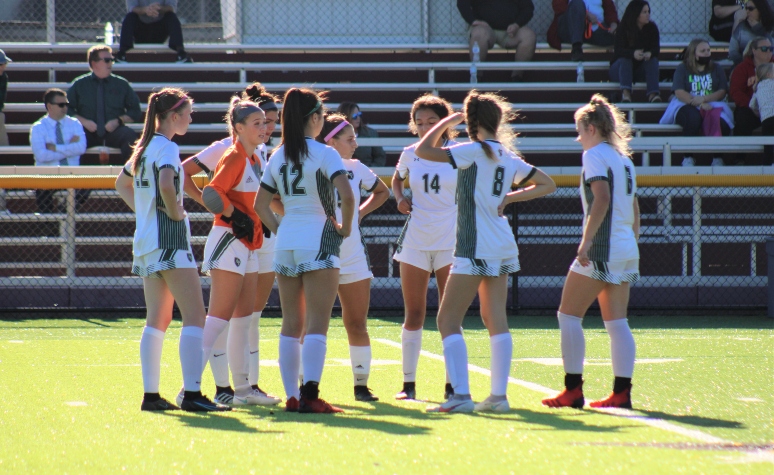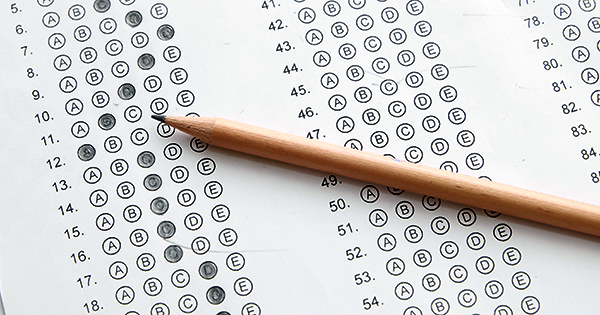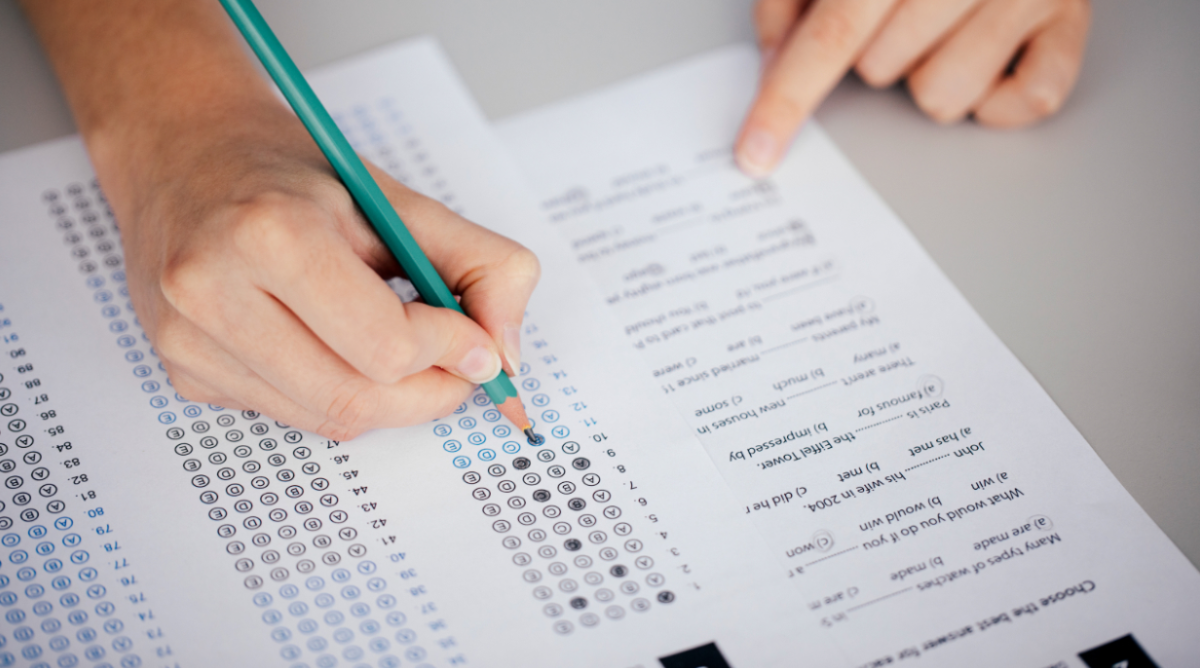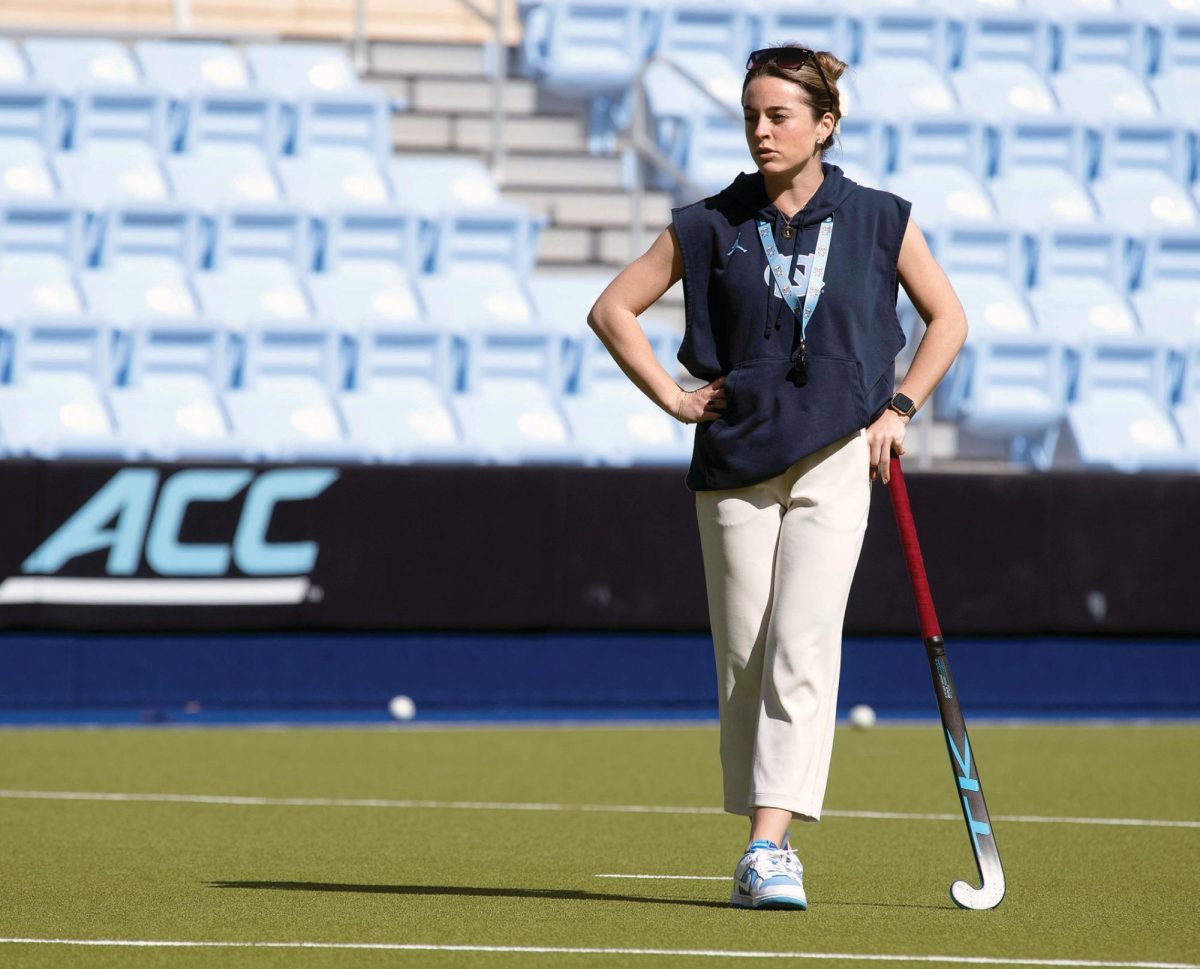My alarm blares at 6:00am and I roll out of bed. While yawning, (and typically tripping over my clothes on the ground) I make my way into the bathroom to start my day. My eyes are sometimes still fighting off sleep when I try to put my contacts in, but eventually I stumble my way back into my room. After I’m ready, I have to pack two bags. One for school, and the other for the sport of the season. In the fall, it’s field hockey.
When I get to my garage, it’s dark and the crickets are chirping. I then perform a balancing act of two backpacks and a goalie bag. (Although sometimes it’s two backpacks, a ski bag, two pairs of skis, and two pairs of poles). Finally, everything is loaded up in the car and I leave for school.
After school, it’s either practice, a game, and/or a team bonding activity. Either way, I normally roll back into my driveway sweaty and smelly when it’s dark and the crickets are chirping.
Then I shower, do my homework, and tumble into my bed around eleven to twelve.
If that’s what your day sounds like, you’re not alone. That is the balance of being a student-athlete, and a lot of the time, it’s not healthy. It’s hard, it’s tiring, and it’s…well, hard and tiring.
Sports are a time when I feel like I can be myself, while pushing my body to do things that I might have thought myself incapable of doing. They are a great place to make friends and a community, and to get some physical activity in. But if you’re not making the effort to take care of yourself, burnout can set in really quick. What I find to be the most important aspect of being on a sport’s team is the balance between school and sport.
It is very hard to find time in the day to get homework done, study for quizzes and tests, and still find the time to eat and sleep on a semi-regular schedule, but that is the only formula for success both in the classroom and on the field. Whether it’s utilizing study halls or limiting screen time, it is important to make time for school because without it, winning a game is not going to be the biggest problem. Also, if an athlete is performing poorly in school and constantly staying up late trying to finish their homework, they’re bound to be exhausted. This means that it will only increase the chances of injury and illness, never mind playing worse.
But, in the same sense, spending too much time worrying about school can hurt a student’s self esteem and development because all they’ll be doing is working. Even though playing a sport isn’t always relaxing, it can still be a time of enjoyment and de-stressing.
The relationship between school and sport can impact a person’s mental and physical health immensely. It is often something that is not talked about enough in the athletics field, and although resources are available for those who need it, it can be really hard making that first step. Working to end the stigma behind athletes’ mental health issues is so important for the industry to grow, and the first step in doing so is for the athletes themselves to prioritize their mental and physical health. Without that, the toxic cycle will only continue. I’m guilty of letting this cycle get the best of me, and not prioritizing my needs. It’s hard to admit that, and it’s even harder to reprogram and operate on a more conscientious cycle. But, what I’ve learned from my mistakes hopefully will help another athlete.
Here’s some tips that might help:
- School is just as important as winning, but that doesn’t mean that it deserves your happiness. I used to stay up until ungodly times at night trying to finish all my homework and study for all my tests. It doesn’t work.
- Now, whenever I have a free moment in school I work on my other homework and I study, trying to replace the time I spent on my phone with work instead. Pushing through the day and not really getting a break from the workload might sound difficult, but the majority of the time it’s better than staying up late and trying to finish everything.
- Communicating with teachers and coaches is so important. They understand what it’s like to have to balance it all, and communicating is crucial to having a good relationship.
- Take breaks. Getting on a new schedule takes time, and breaking habits is difficult. Talk to teammates, friends, and family about stress to lessen the load. It’s surprising how many people relate to the lifestyle.
These tips aren’t for everyone. Everyone needs to find their own routine that works best for them, but the most important takeaway is that too much of one thing is never good, and balance in life as a student-athlete is so important in order to succeed.

























